AI (artificial intelligence) is absolutely taking over the music production world, and the music industry in general, really.
But the big question is whether or not it’s actually helping or hurting human music producers.
That’s why, today, I’m breaking down both the pros and cons of AI music production and how you can use artificial intelligence to actually level up instead of falling behind.
I’ll be covering things that all music producers need to know, like:
- AI tools that can save music artists hours ✓
- How AI-generated music compares to real human emotion ✓
- The truth about AI voice cloning technology ✓
- Legal and ethical concerns in AI music production ✓
- Why some tracks lose that same emotional depth ✓
- Ways AI can create entirely new sounds ✓
- Balancing AI and human creativity in real workflows ✓
- The future of AI in music production (creative aspects) ✓
- How AI affects job security for music artists ✓
- Incorporating AI in your own production process ✓
- Much more about the pros and cons of AI music production ✓
By knowing all the pros and cons of AI music production, you’ll have a clear understanding of what’s really going on in the current music industry.
Because, let’s be honest, things are changing super quickly.
Plus, you’ll be able to take advantage of the tools that give you a real edge, dodge the ones that can dull your sound, and dominate this whole AI wave like an absolute boss.
This way, you’ll never have to worry about getting left behind or losing your creative voice in a world full of AI-generated tracks ever again.
Table of Contents
- The Pros and Cons of AI Music Production: Breaking it Down
- Pros of AI in Music Production
- Cons of AI Music Production
- Losing the Human Touch/Human Creativity (If Used Incorrectly)
- Synthetic Vocals vs. Real Emotion
- Legal, Copyright, Ethical, And Artistic Consideration
- Could Sometimes Sound Cold & Robotic
- Has the Potential to Make Human Producers/Human Artists Obsolete
- What They’re Not Telling You About AI-Generated Music (And Why It Matters)
- Finding the Sweet Spot: Balancing AI (Artificial Intelligence) & Human Workflows
- Final Thoughts: What You (As Music Producers) Should Do With This Information
The Pros and Cons of AI Music Production: Breaking it Down
Before diving deep, let me set the stage for you real quick…
The pros and cons of AI music production aren’t always obvious, and that’s exactly why this breakdown matters.
Some of these benefits can feel game-changing, while some of the downsides can creep in without warning.
Understanding the real-world impact of artificial intelligence on the music production process isn’t optional anymore 一 it’s absolutely essential as music producers.
Don’t worry if it sounds a little confusing now, because I’ll be breaking down the pros and cons of AI music production in detail so you really get a solid understanding.
This way, you’ll be able to successfully take advantage of artificial intelligence without losing your human creativity/human expression.
Pros of AI in Music Production
AI tools are becoming a major part of the music production process, and not just for beginners, but for advanced music producers who want to streamline their workflow and explore new creative possibilities as well. And while the pros and cons of AI music production are constantly evolving, the benefits below are already shaping how music is being made right now in the music industry, and you really need to know. So, let’s break it down real quick.
-
Saves You Massive Time/Automates Mundane Tasks
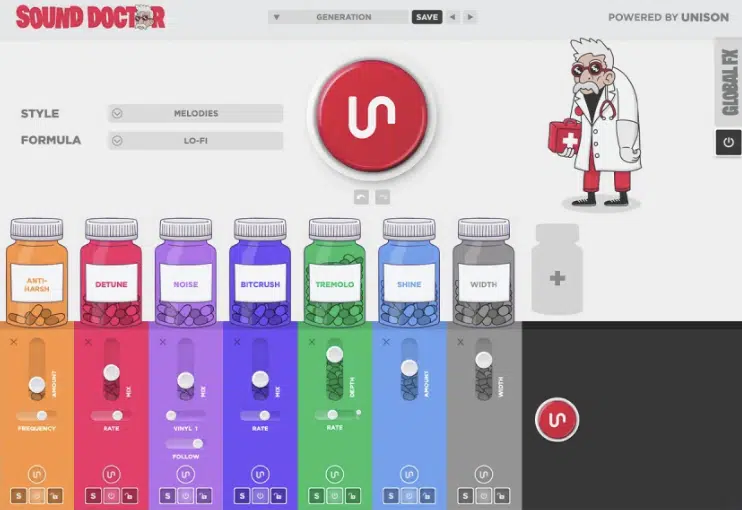
Let’s be honest, there’s a ton of stuff in the music-making process that feels more like busywork than actual creativity, that’s a fact.
Well luckily, this is where one of the biggest pros of AI music production kicks in hard 一 time-saving.
For example, AI tools for music creation like iZotope RX or Mastering The Mix’s Reference can automatically:
- Balance background levels
- Clean up vocal recordings
- Match reference track EQs
And this happens all in seconds, believe it or not.
So instead of spending 40 minutes dialing in minor frequency tweaks, you can let the AI do the heavy lifting and get back to arranging, sampling, or tracking.
And it goes beyond just cleanup because AI can stem your tracks, label your samples, suggest vocal styles, and generate MIDI chord progressions with just a few clicks.
That means you can save music artists hours of clicking, sorting, and tweaking, and spend that time doing what actually matters.
So yeah, when we’re weighing the pros and cons of AI music production, this one’s a game-changer for workflow, no doubt about it.
Automation isn’t just about speed 一 it’s about clearing space for real creativity.
PRO TIP: Try using Sound Doctor (above) to automatically detect frequency imbalances and tonal issues across your stems.
It’ll give you instant, AI-driven suggestions that normally take hours of manual EQ sweeping, which nobody has endless time for, let’s be honest.
It’s perfect for cleaning up muddy low-end or harsh high-mids without overprocessing, and can seriously upgrade your workflow without interrupting your creative process.
-
Idea Generation on Steroids
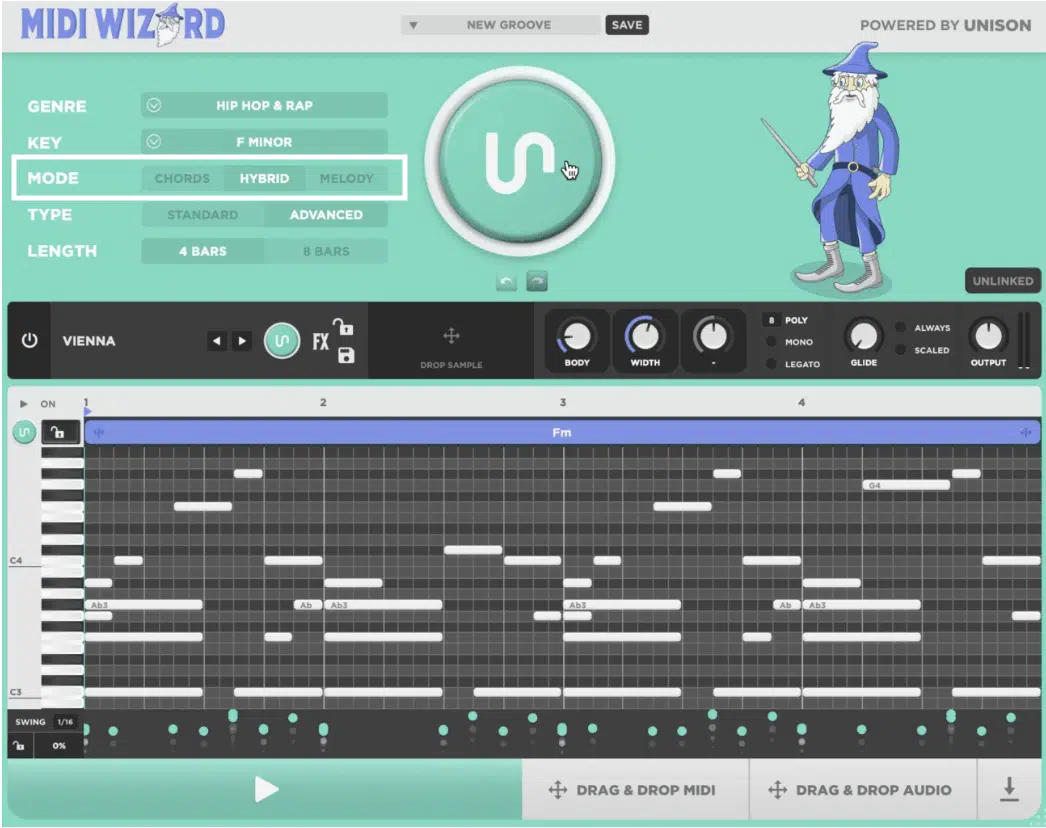
We’ve all hit those moments where the DAW’s open and there’s just nothing coming or we’re dealing with such intense beat-block that it feels pointless.
And that’s another area where AI tools absolutely shine (and it’s one of the most underrated pros of AI music production).
Let’s say you’re stuck trying to come up with a hook…
You can simply load up a tool like MIDI Wizard or Amadeus Code and let the AI generate 10–15 unique melodic ideas based on genre, tempo, or scale.
But don’t ever think you have to take them as is 一 you can grab the best parts, flip them, stretch them, and build something totally original.
For example, if AI suggests a melody in D Lydian, you can adjust the swing and layer it with ambient pads so it becomes the centerpiece of your entire track.
And for music producers working in multiple musical styles, AI helps you play around with new rhythms, progressions, and musical elements you wouldn’t normally reach for.
And keep in mind that it’s not just for breaking creative blocks, it’s for finding brand-new pathways in your creative process that you didn’t even know existed.
So in the bigger picture of the pros and cons of AI music production, this is where artificial intelligence truly shines.
Not by replacing human creativity, but by kicking it into high gear when you need it most.
Side note, if you want to learn everything imaginable about AI music production (step-by-step), I got your back.
-
Making Pro-Level Production Affordable for Everyone
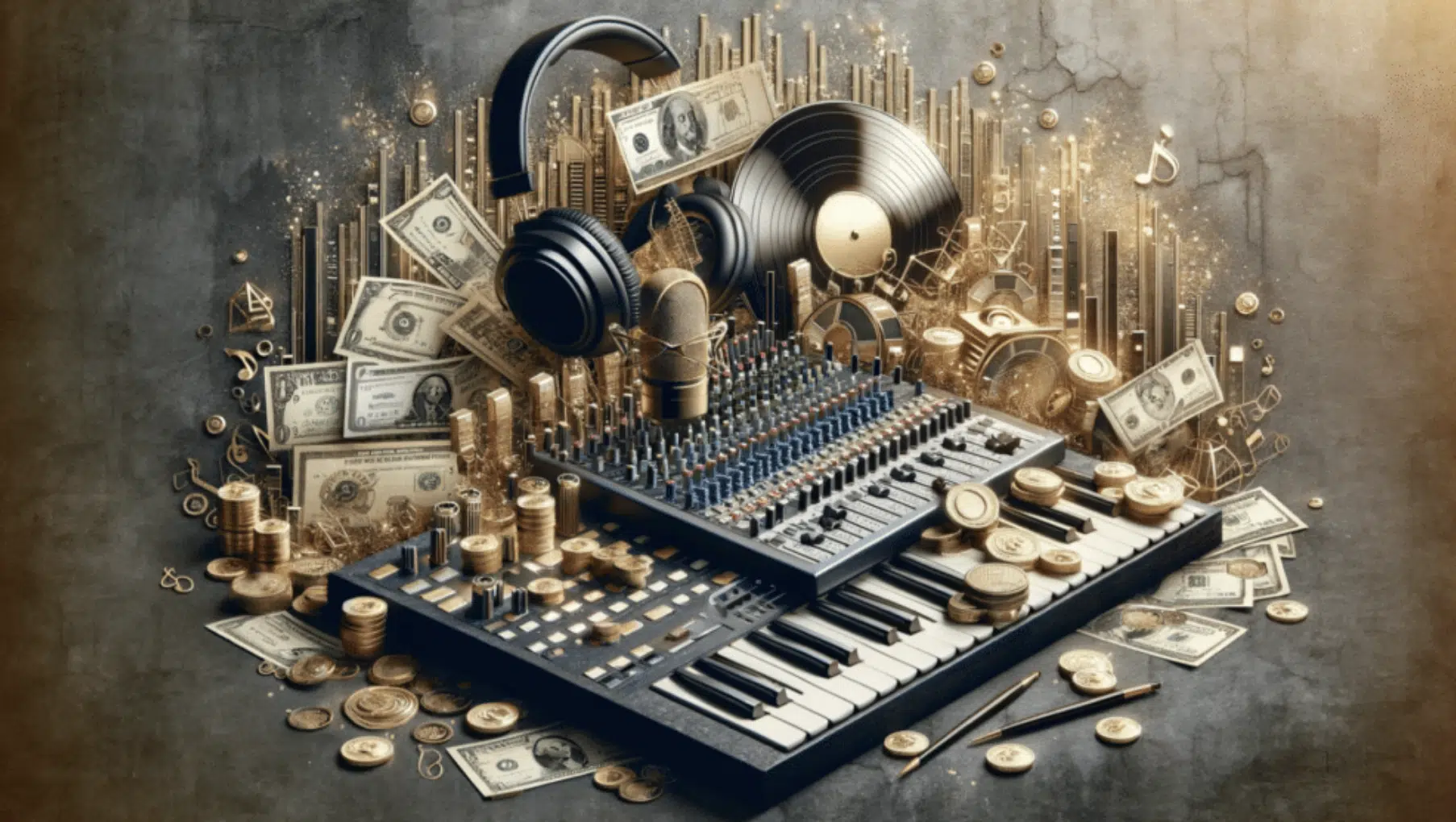
One of the most underrated pros of AI music production is how much it lowers the cost of getting high-quality results (even if you’re just starting out).
Instead of dropping $2,000+ on plugins, analog gear, and engineering courses, you can now use AI tools like BandLab Mastering or LALAL.AI to handle tasks like:
- Mixing
- Mastering
- Audio editing
And all for little to no money, which is absolutely amazing.
This means that even if you’re on a budget, you can still get that high-quality production sound without sacrificing clarity, loudness, or stereo width.
And what’s even more game-changing in music creation is how AI technology gives independent artists access to tools that used to be reserved for major-label studios.
For example, AI-generated mastering chains can now match the sonic profiles of industry reference tracks.
This lets you release radio-ready music without ever hiring an audio engineer.
So when we’re talking about the pros and cons of AI music production, this one’s a major pro: it helps level the playing field.
It really gives bedroom producers and indie creators access to affordable, pro-level results that actually compete in today’s music industry/music business scene.
-
Next-Level Creativity & Sound Innovation (+ Never Having a Creative Block Again)
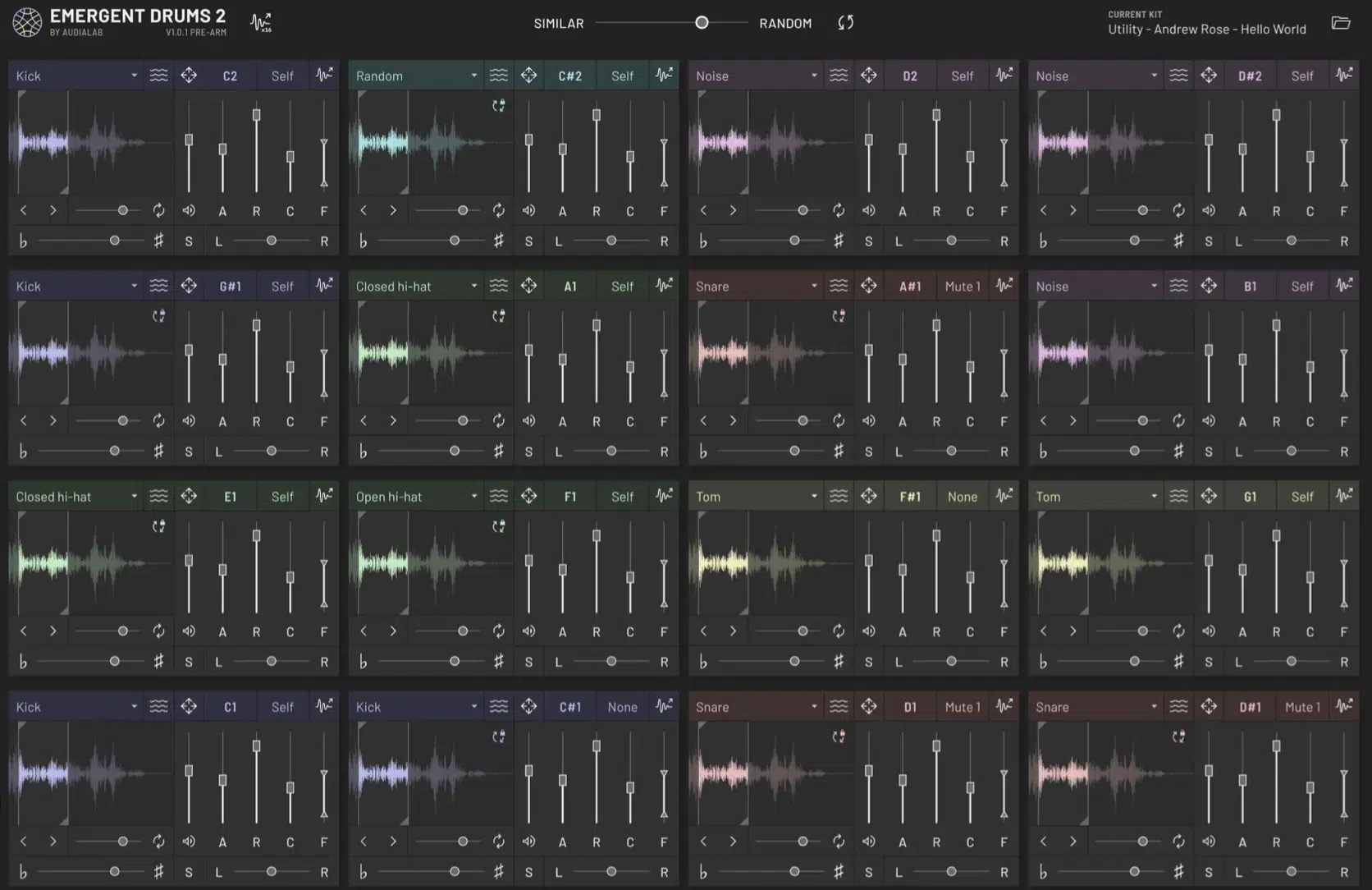
Another huge pro in the pros and cons of AI music production is how AI opens the door to entirely new sounds you probably wouldn’t come up with on your own.
Let’s say you’re working on a melodic trap beat…
Instead of grabbing your go-to synth patch, you could run your top-line melody through an AI sound design tool like Emergent Drums 2 or Orb Producer Suite 3.
They use deep learning to reshape musical elements like pitch, rhythm, and timbre in ways that are seriously unpredictable (but super inspiring).
And what’s wild is that AI music generators can even blend genres and musical styles.
For example, you might feed it jazz harmony and techno drum sequencing, and it’ll generate music that sits somewhere between Flying Lotus and Richie Hawtin.
And believe me, these aren’t just random textures either 一 they’re legendary musical ideas you can build full beats around all day.
Switch it up, think outside of the box, and you’ll come up with absolute magic.
So if we’re being real, one of the biggest upsides in the pros and cons of AI music production is how AI tools let us explore creative possibilities that push way beyond human intuition.
It will help you discover, and play around with entirely new sounds and workflows inside the studio or your bedroom that will absolutely blow people’s minds.
-
Helps You Make Smarter Music Moves
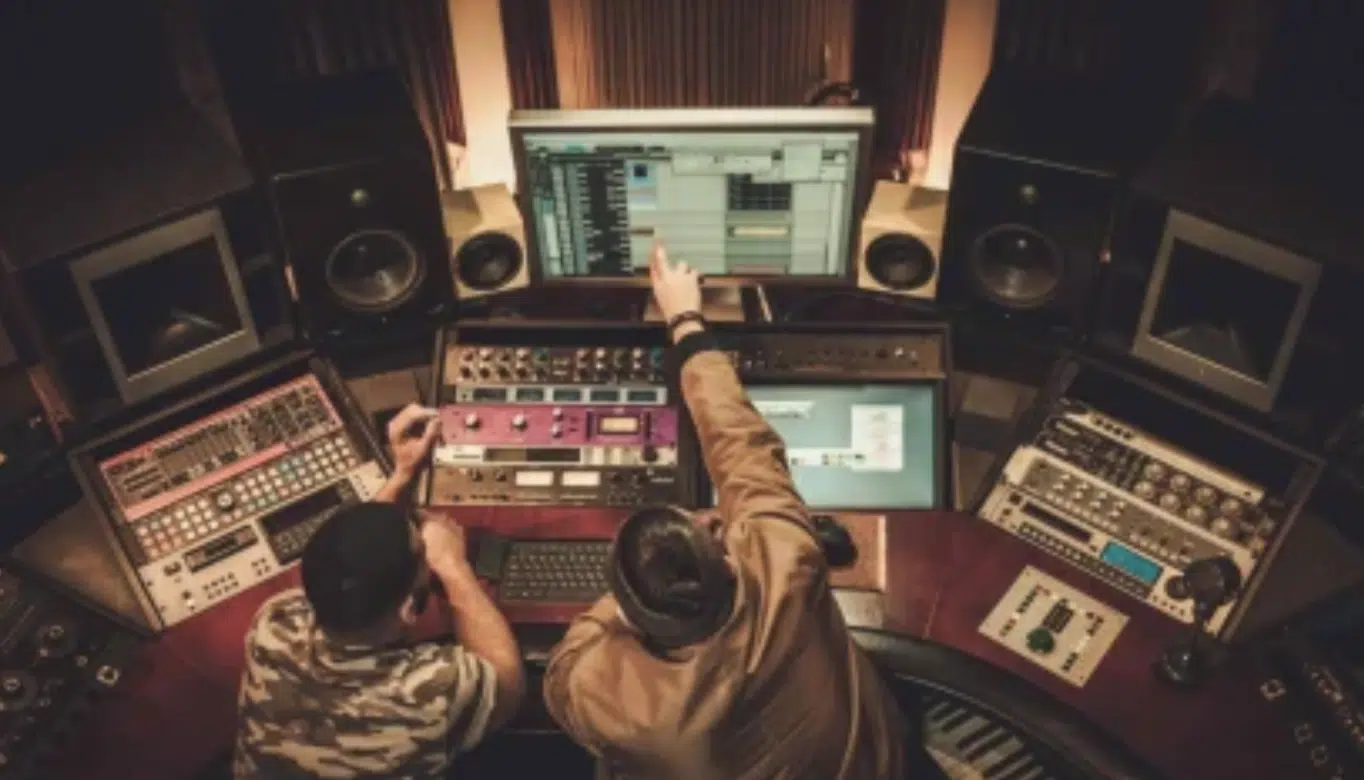
Beyond creativity, one of the more practical pros of AI music production is how it helps us make data-backed decisions that actually boost visibility and long-term success.
For example, platforms like LANDR, Cyanite, and other AI-powered streaming analytics use AI algorithms to analyze trends in the music industry.
It lets you see what chord progressions, tempos, vocal styles, and song structures are performing best on streaming platforms.
This kind of insight can help you reverse-engineer what works commercially, while still keeping your music authentic to your style.
And if you’re doing sync licensing or pitching your music to curators, AI tagging tools can even auto-label your tracks with terms like “moody,” “uplifting,” or “vocal-heavy.”
It will save you hours and hours during the submission process, for sure.
And it doesn’t just simply speed things up 一 it makes your submissions more competitive because they match the metadata supervisors are actually searching for.
So when evaluating the pros and cons of AI music production, this is a major win.
AI doesn’t just help you create music, it helps you get that music heard, placed, and monetized with way less guesswork (can you say hell yeah!).
Cons of AI Music Production
Now that we’ve covered the upsides, it’s time to talk about the real challenges. Because even though the pros and cons of AI music production include some serious benefits, the truth is, there are also very real drawbacks that can affect the music production process if you’re not careful. So, let’s get into it.
-
Losing the Human Touch/Human Creativity (If Used Incorrectly)
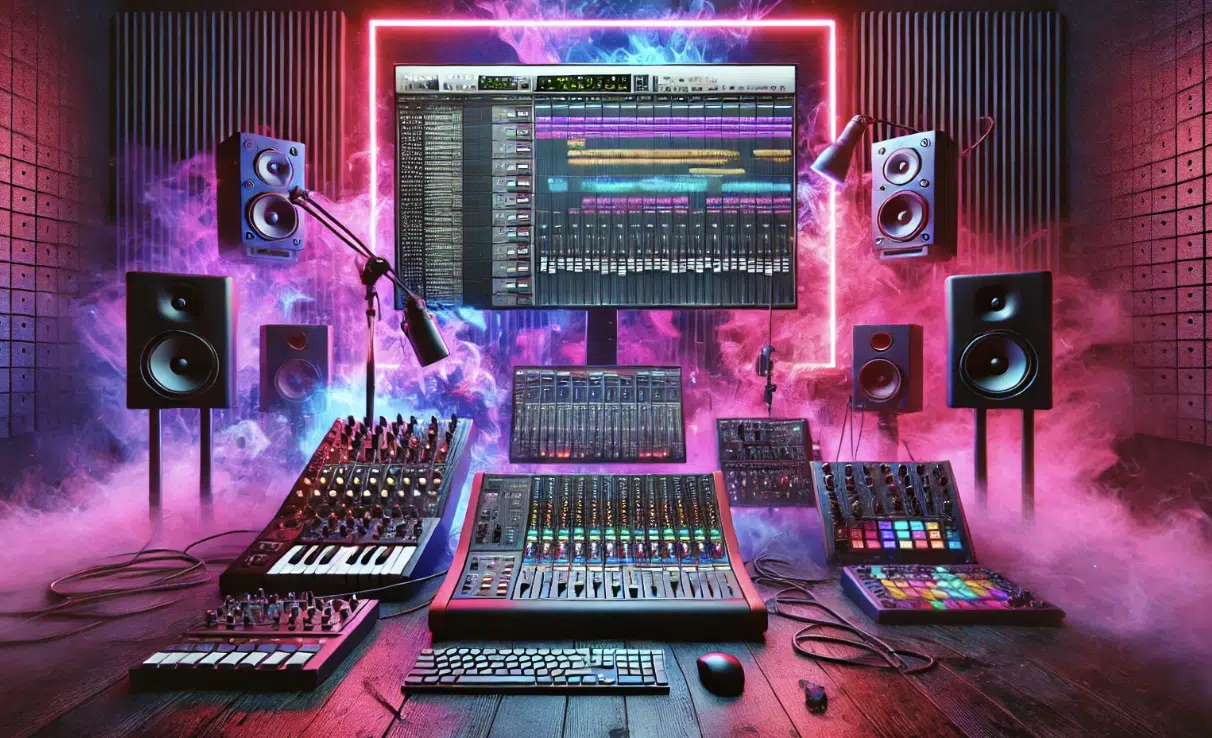
One of the biggest problems with relying too heavily on AI tools is that it can strip away the human touch that gives a track its soul, and that’s unacceptable.
For example, let’s say you’re using an AI music generator to build your chord progressions, melodies, and drum patterns from scratch, right?
If you don’t add your own edge/flavor to them, it’ll usually end up giving you something that technically works, but lacks that natural movement and raw emotion.
This is because that’s something only you can bring to the table as a human producer/human artist.
I’ve seen it happen the most in genres like lo-fi and melodic house, where music producers use drag-and-drop AI samples without tweaking:
- Velocity
- Swing
- Groove
Therefore, the final product ends up feeling flat and super amateur.
And while the pros and cons of AI music production include huge time-saving perks, it’s important to remember that human creativity is what breathes life into every part of the music-making process.
From tweaking synth automation to making unpredictable arrangement choices that algorithms just wouldn’t think of, and everything in between.
So just remember the key isn’t avoiding AI altogether 一 it’s using it intentionally, without letting it mess up the unique human expression that sets your music apart.
-
Synthetic Vocals vs. Real Emotion
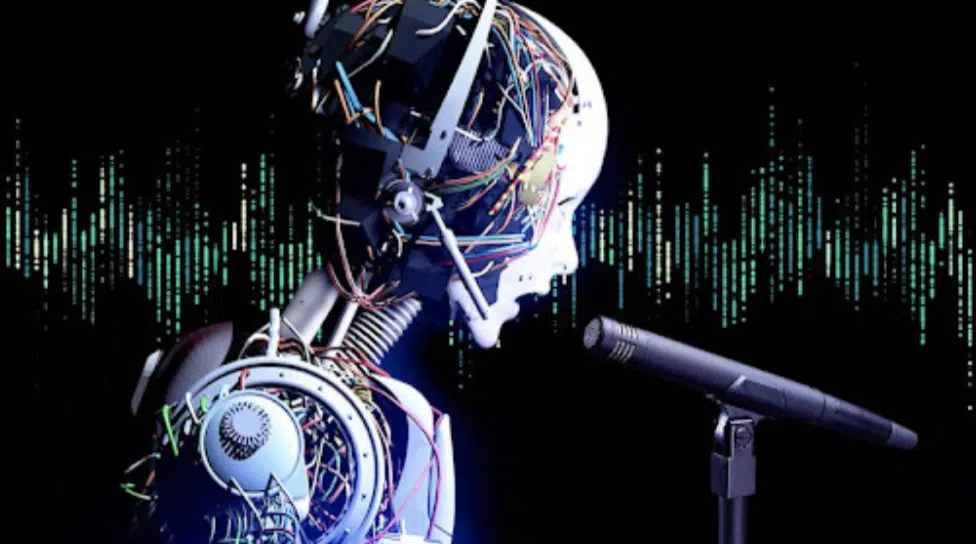
Another major con in the pros and cons of AI music production is how AI-generated vocals still fall short when it comes to delivering real, emotional performances.
Even though AI voice cloning technology is crazy advanced right now (with tools like Kits.AI and Voicemod letting you generate pitch-perfect royalty-free AI voices in seconds), there’s still something missing.
For example, when you’re laying down a sadder ballad or a gritty trap verse, those tiny imperfections mean absolutely everything.
Those variations in timing, vibrato, and breath control from a real human singer are what carry emotional depth, no two ways about it.
AI models often smooth these out way too much 一 making the performance sound robotic or overly polished most of the time.
I’ve tested an AI-generated female vocal for a chillwave track recently…
And while the tone was clean and usable, the delivery lacked phrasing variations and natural dynamic shifts, which made it hard to connect with on a deeper level.
That’s the part AI still can’t replicate, those subtle human emotion that makes vocal tracks unforgettable.
And this is where the pros and cons of AI music production really become clear.
AI brings speed and flexibility, but it can’t always deliver the same emotional connection that human musicians bring to the mic.
-
Legal, Copyright, Ethical, And Artistic Consideration
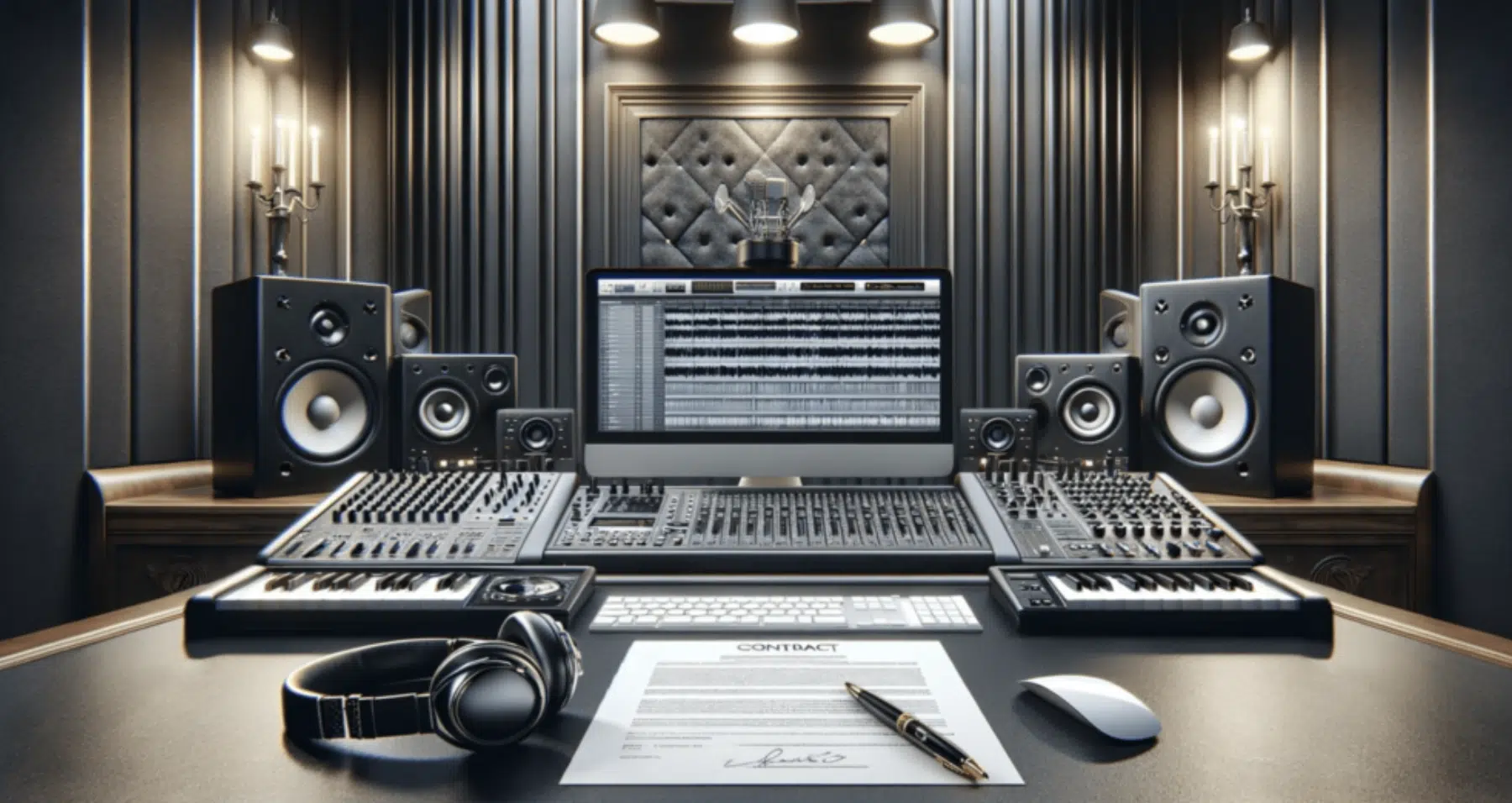
This next one’s big, and easily one of the most overlooked dangers in the pros and cons of AI music production conversation: legal and ethical risks.
Nobody really wants to worry about this crap, but you have to unfortunately.
A lot of AI-generated music tools are trained on massive datasets of existing music, sometimes without proper licensing or permission from the original music artists.
That means when you generate music or use AI voice cloning technology, you could unknowingly be incorporating melodies, chord progressions, or vocal styles that are derivative of copyrighted works.
And legally, things are still a gray area because the U.S. Copyright Office has ruled that fully AI-generated music can’t be copyrighted.
This means if you create music using AI models without any human input, you may not even own the rights to it.
This has caused huge problems for music producers selling beats online or pitching to sync libraries, that kind of thing.
So as we weigh the pros and cons of AI music production, it’s key to stay educated about ethical concerns and licensing limitations.
As well as the legal implications of using artificial intelligence in your workflow 一 especially when money, credits, and publishing rights are in the mix.
-
Could Sometimes Sound Cold & Robotic
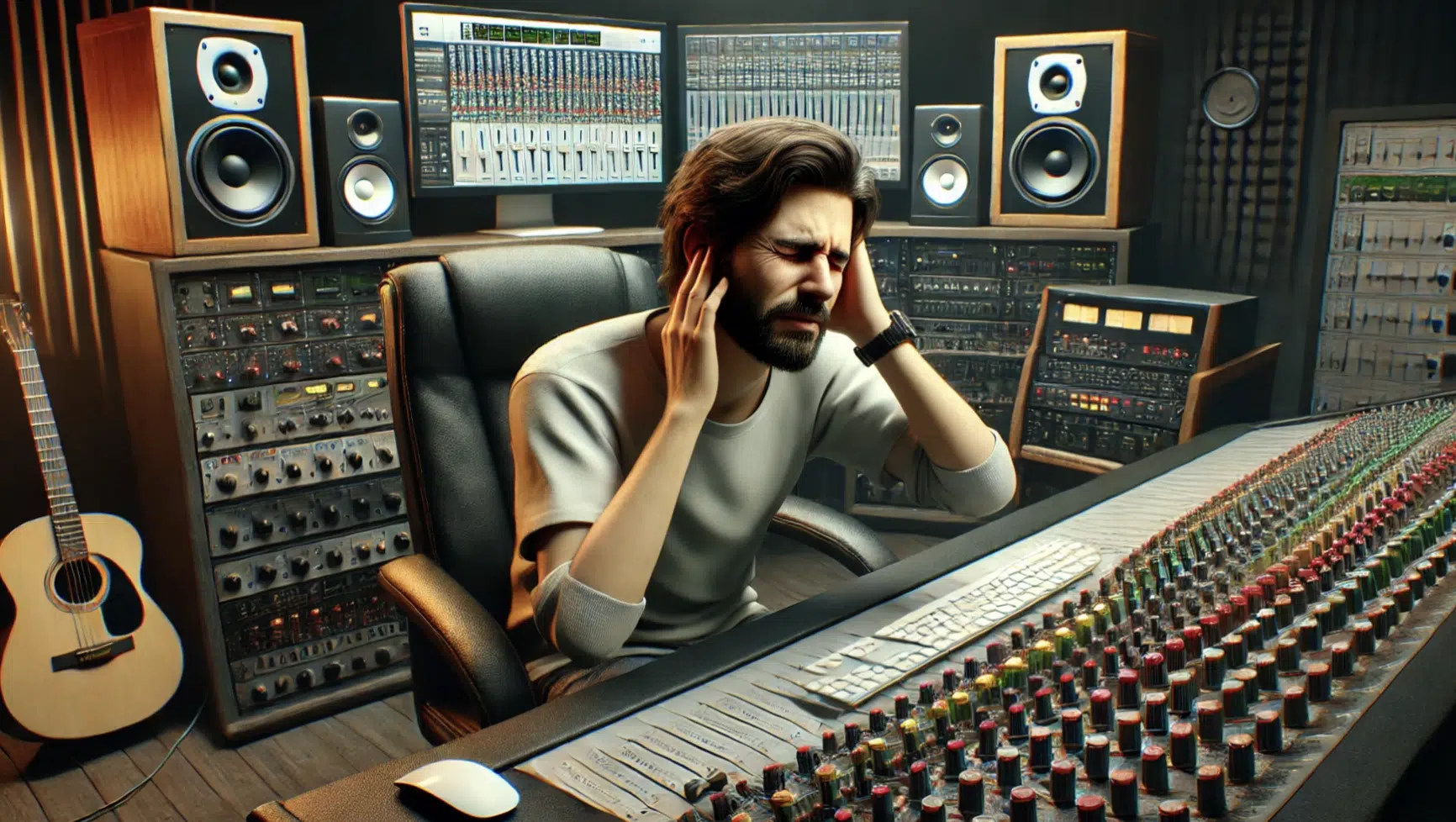
One of the lesser-known, but very real drawbacks in the pros and cons of AI music production is the tendency for AI-generated music to sound overly polished.
And to be honest, sometimes just straight up lifeless.
For example, when you use AI to generate music stems for ambient or orchestral tracks, you might notice that everything is technically perfect, but that’s the problem!
There’s no subtle push or pull, no micro-fluctuations in timing, and definitely no grit or swing unless you force it in manually.
I recently ran a jazz guitar loop through an AI music generator and, while the voicing was smooth, the phrasing lacked any human nuance…
No ghost notes, no articulation, just quantized precision that felt insanely stiff.
And while music creation/music composition tools like AI voice cloning technology or automated chord progression generators might speed up the music production process, they can also remove the unpredictable magic that makes a track feel alive.
This is where the human touch and human expression still matter most (especially when you want your music to actually move people and hit them in their feels).
So when we look at the full picture of the pros and cons of AI music production, it’s clear that even the most advanced AI tools still struggle to replicate the emotional depth and imperfections that give music its character.
That’s why I said earlier, you have to add your own edge/flair to the AI-generated music.
-
Has the Potential to Make Human Producers/Human Artists Obsolete
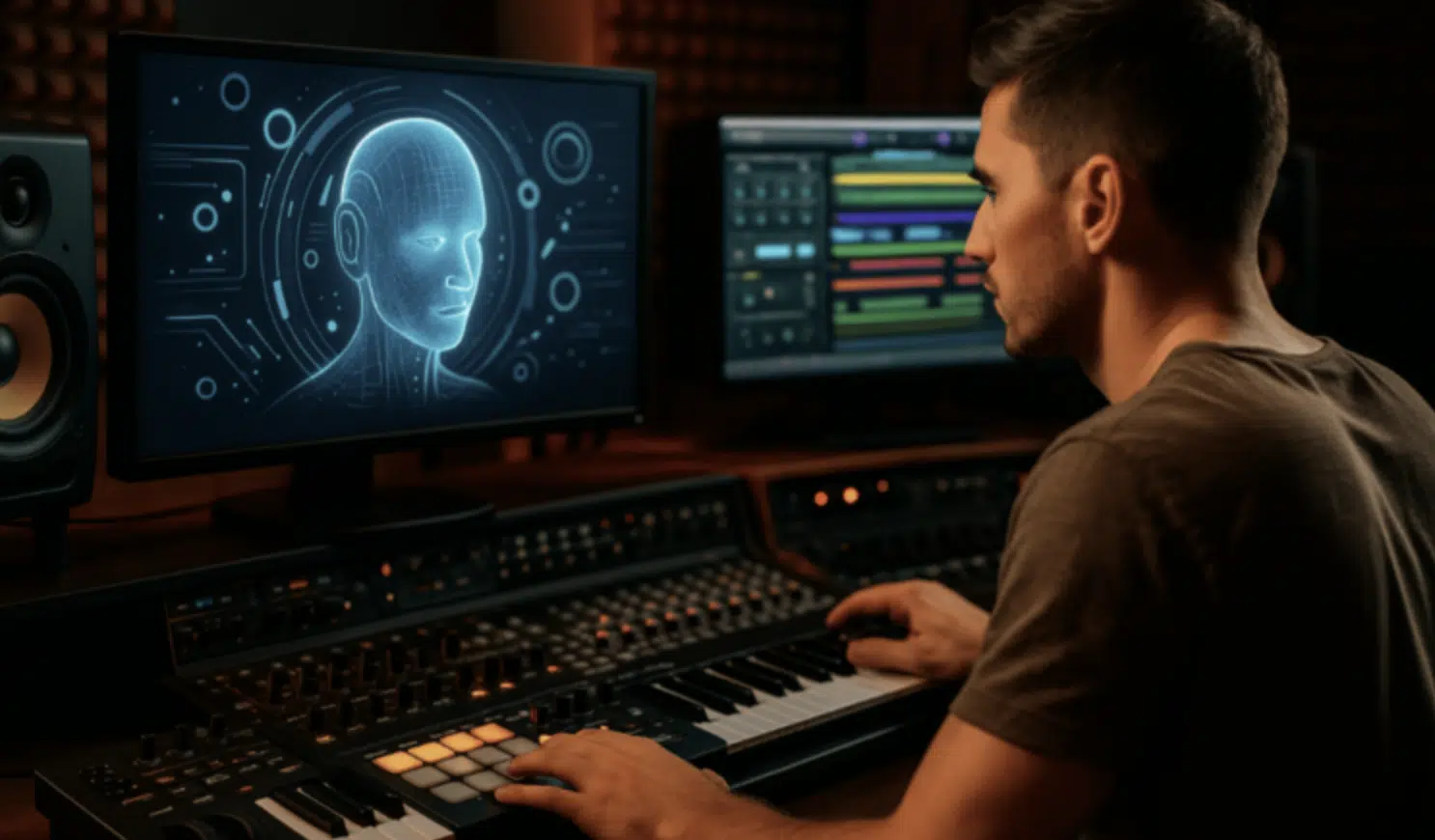
This next one’s uncomfortable to talk about, but it’s something we can’t ignore when discussing the pros and cons of AI music production…
The fear that AI might one day replace us entirely (which I’m personally scared of).
We’re already seeing companies use AI to generate entire backing tracks, arrange full orchestral cues, and even produce pop songs with zero human performers involved.
I mean, just look at the recent releases where AI-generated music was used to mimic Drake and The Weeknd’s voices, racking up millions of streams before getting pulled.
It’s not just vocals either 一 AI can now generate music in the style of specific human musicians, often getting frighteningly close to the real thing.
And for independent artists who rely on commissions or custom work (e.g., beatmakers, vocal producers, or session musicians), this raises serious concerns around job security.
I mean, if labels or clients can just push a button to generate music that mimics a human artist’s style, why would they pay a real person?
So when weighing the pros and cons of AI music production, we have to be honest about this potential threat.
Bottom line, you have to ask yourself what makes our human musicianship irreplaceable in a world increasingly run by artificial intelligence and take advantage of that.
-
What They’re Not Telling You About AI-Generated Music (And Why It Matters)
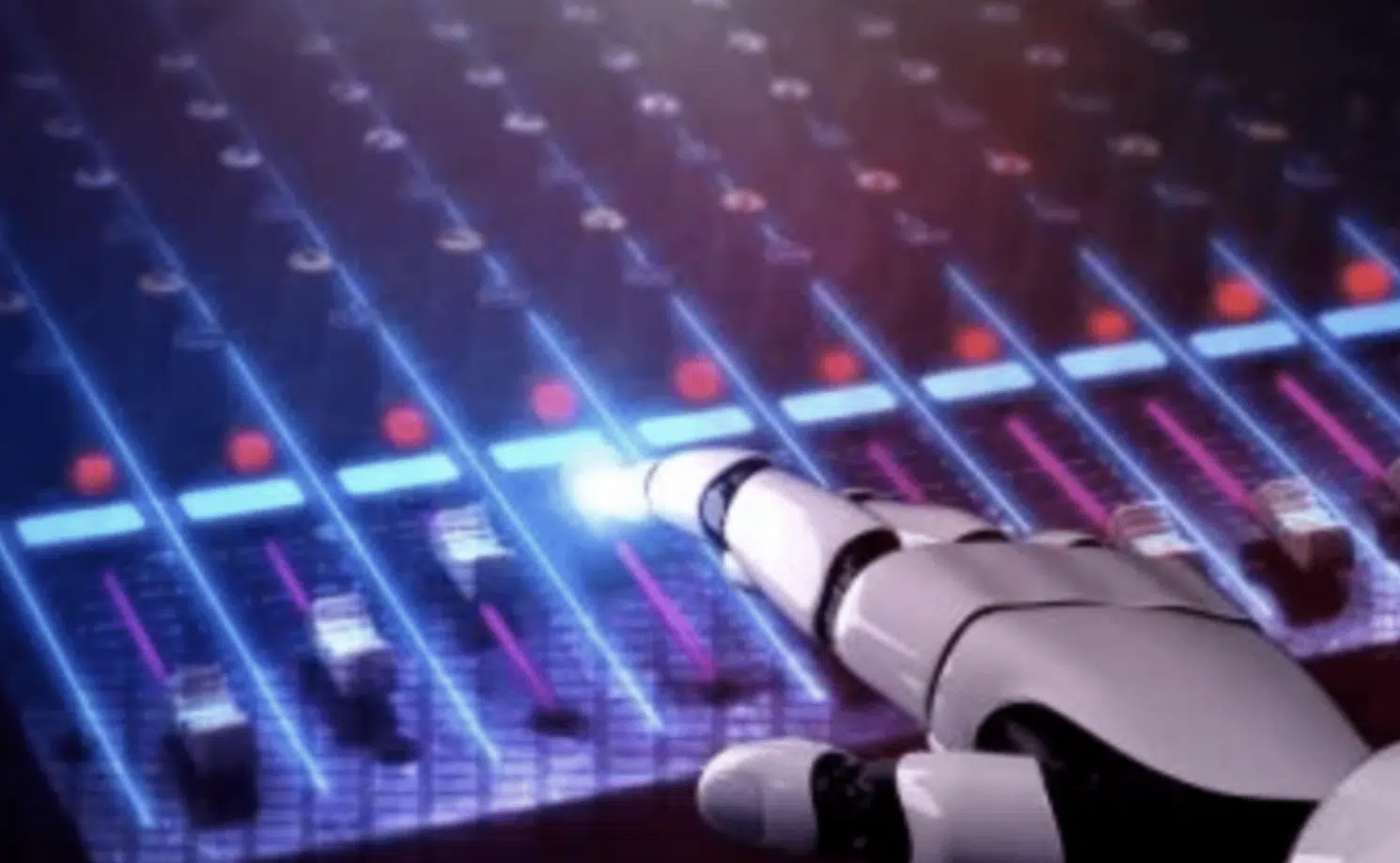
Here’s where things get even trickier, because another major downside in the pros and cons of AI music production is the fact that most AI models don’t tell you:
- How they were trained
- What data they used
- Where your sounds are really coming from
Let’s break that down a little more so you can really understand what I’m talking about…
A lot of popular AI tools are trained on massive libraries of existing music, often scraped from streaming platforms, sample packs, or public performances.
Sometimes without permission, like we just talked about.
That means the chord progressions or vocal styles you’re generating might be directly influenced by copyrighted material, and you’d never even know.
For example, some AI models have been found to output near-identical melodies to existing songs 一 putting music producers at risk without them doing anything wrong.
And beyond the legal side, there’s also the issue of bias.
Most AI-generated music tends to lean toward Western pop structures, ignoring other musical styles, cultures, and human artistry.
This really limits the creative possibilities and diversity of the music created. AI relies heavily on whatever it’s fed, and if the training data is limited, your output will be too.
So in the broader scope of the pros and cons of AI music production, this lack of transparency is a real-deal problem.
As music producers, we deserve to know where our sounds are coming from, how they’re made, and whether we’re creating something truly original or just a remix of someone else’s ideas
Finding the Sweet Spot: Balancing AI (Artificial Intelligence) & Human Workflows
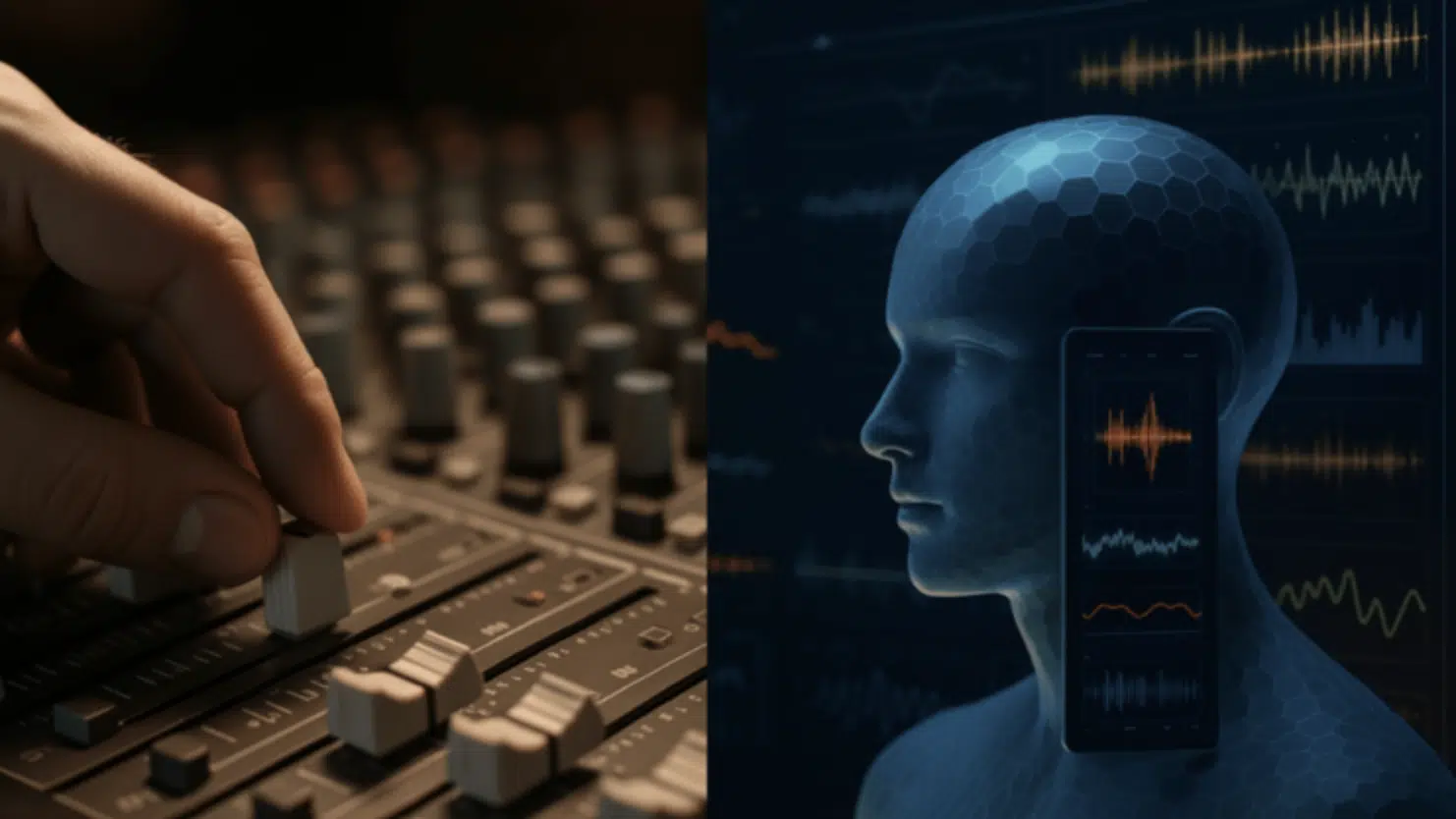
The real win isn’t choosing between AI or human creativity, it’s learning how to combine both in a way that actually elevates the music-making process big-time.
Let’s say you generate music ideas with AI tools like MIDI Wizard 2.0 or AIVA, but then, to bring that raw human expression to the table, you add in your own:
- Automation
- Chord modulations
- Vocal layers
That’s where the real magic happens, my friends.
The AI speeds things up and opens the door to entirely new sounds, but it’s your own instincts, vibe, and performance that bring the same emotional depth/human experience to life.
I’m also seeing more music producers use AI-generated vocal tracks for early demos, only to bring in human performers later for that final take.
It’s a workflow that balances AI and human creativity perfectly 一 letting you get the structure, tone, and overall vibe right before adding human artistry.
Plus, this hybrid approach is freakin’ perfect for independent artists who want high-quality production with full creative control (which you all should).
And don’t forget, AI models aren’t a replacement for human skill, they’re just tools, and when used right, they can enhance your art form without replacing the heart of it.
Whether you’re composing music with artificial intelligence or simply tweaking generated chord progressions to match your artist’s style, that right balance between AI and human musicianship is what separates a bland track from an unforgettable one.
At the end of the day, the pros and cons of AI music production aren’t about extremes, they’re simply about finding your workflow sweet spot and owning it like a pro, period.
Final Thoughts: What You (As Music Producers) Should Do With This Information
So what should you actually do with all this info?… Well, here’s the deal.
If you’re a serious music producer, the smartest move is to learn how to use AI in music production without letting it take over the entire creative process.
#1. Start by experimenting with AI-generated music and AI music generators to overcome creative blocks all day.
But, always make sure to inject your own human emotion and feel.
#2. Use royalty-free AI voices and AI voice cloning technology for placeholders or concept work, but bring in real vocalists or voice actors when you need that emotional connection to cut through.
This way, you preserve human musicianship and vocal diversity while still taking full advantage of AI tools.
#3. Make sure to always stay informed on the legal side of things (and always know the difference between AI-generated and human-generated content).
If you’re submitting music projects for sync or streaming, make sure you own the rights and understand the ethical and artistic considerations of using AI-trained data sets.
#4. Don’t get caught off guard by hidden licensing issues or potential quality concerns down the line.
Remember that music production offers endless opportunities, and AI brings a wave of new tools to help you create music faster, smarter, and more efficiently, that’s all.
But at the end of the day, it’s your human talent, emotional connection, and technical expertise that make the final product really hit home.
AI relies on patterns, but you (as producers and musicians in general) create music from real experience 一 and that matters more than ever!
So whether you’re building chord progressions, composing with AI, or just tweaking an idea late at night, always prioritize that human element.
That’s what gives your music real impact.
The future’s already here people, and with the right mindset, you can dominate it.






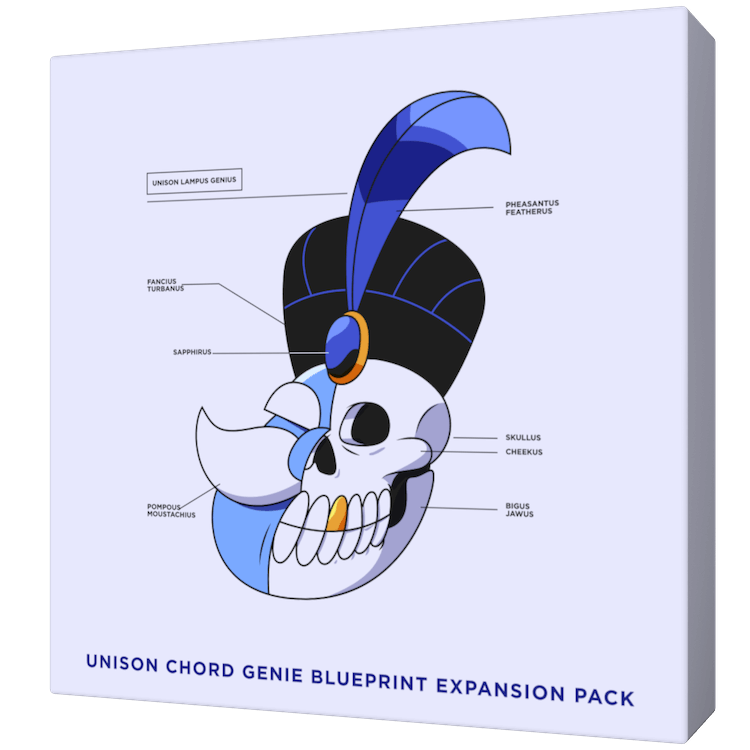
Leave a Reply
You must belogged in to post a comment.